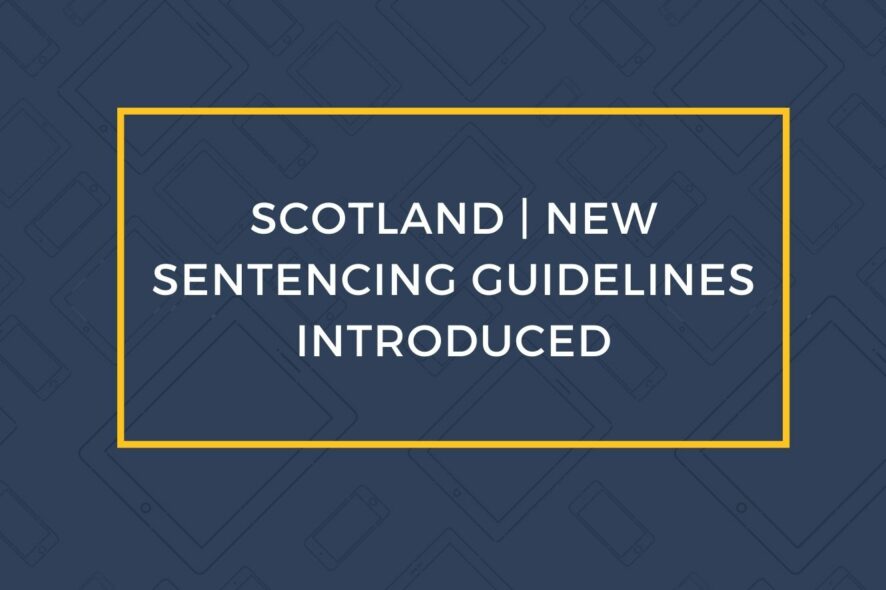The Scottish Sentencing Council (“SSC”) has announced new guidelines setting out the process for all sentencing decisions in Scotland. The guidelines are to be submitted to the High Court for approval. The SSC has developed and published one guideline titled “Principles and purposes of sentencing” till date. These new general guidelines are the second and have been a work in progress since the end of 2018. In due course, the SSC intends to publish offence-specific guidelines. Sentencing young people, death by driving, sexual offences and environmental and wild life crime are initial priority areas for the SSC.
Key features of the new guidelines are:
- These guidelines have been developed following public consultation, which identified that the publication of sentencing guidelines would improve public awareness and confidence in sentencing.
- The draft guidelines set out an eight-step process to explain how courts arrive at sentencing decisions. They are an important development in Scottish sentencing practice and procedure as a codified statement on the approach to sentencing decisions in Scotland has been made.
- The guidelines re-state the need for sentencing judges to have regard to any mitigating factors. This is an opportunity to present material to the court with a view to reducing the level of any penalty. On this basis, there are clear benefits to taking a proactive approach, with a view to collating evidence of relevant mitigation.
- The guidelines also re-state the need for sentencing judges to take account of a guilty plea and, if appropriate, to apply a discount on the headline sentence, in order to reflect the utilitarian value of the guilty plea and the expense saved from avoiding the need for a potentially long-running and complex trial.
The SSC is due to publish its third Business Plan later this year, which will provide an insight into its current programme of work and timescales for the publication of further guidelines.
*Tanvi Singh, Editorial Assistant has put this story together.







